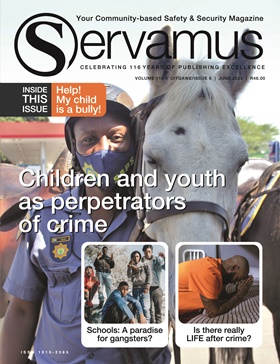Compiled by Annalise Kempen
Nobody volunteers to become a victim of human trafficking or modern slavery. And yet, it seems so easy for some individuals to be coerced or threatened into a position where they are being exploited. This is especially so when they are vulnerable or desperate to find employment or a roof over their heads. In this second article about human trafficking, which is based on the SAMLIT (South African Anti-Money Laundering Integrated Task Force) report entitled Follow the money. How understanding financial flows and key indicators can help to fight modern slavery and human trafficking in South Africa, we focus on modern slavery and human trafficking typologies in South Africa.
To effectively target human trafficking and modern slavery and the networks that exist in South Africa, it is important to identify and disrupt the associated typologies (categorisation/classification) and financial flows that support trafficking. When different typologies of these crimes are examined, it can improve financial institutions' ability to proactively identify transactions which are linked to human trafficking and modern slavery activities. Furthermore, typologies can assist in creating a better understanding of which elements are required for successful investigations and ultimately prosecutions to bring the perpetrators to book. Equally important is that it can help with the development of appropriate services for victims and survivors of human trafficking and modern slavery and increase community awareness about these crimes. This process can also help to prevent further human trafficking-linked financial crimes.
Global dashboard of perpetrators
According to data that was also extracted from the Refinitiv® World-Check® Risk Intelligence database (the data collected up to February 2022), the following information was revealed:
Male versus female perpetrators
Globally, the proportion of male perpetrators involved in both modern slavery and human trafficking is higher than women, however women are the dominant perpetrators (80%) in cases of human trafficking alone. This data supports the notion that women are often used as recruiters in human trafficking activities. Sadly, these women had often been victims themselves who became recruiters to tap into the vulnerability of women trusting other women.
Six special interest categories of risk related to modern slavery and human trafficking were used to extract the data, namely:
- Human rights violation: 42.6% male and 39% female perpetrators
- Human trafficking: 19.4% male and 29.9% female perpetrators
- Sexual exploitation: 20.6% male and 17.2% female perpetrators
- Exploitation of children: 15.5% male and 11.6% female perpetrators
- Forced and slave labour: 1.6% male and 2% female perpetrators
- Labour rights violations: 0.3% male and 0.2% female perpetrators.
******************************
[This is only an extract from an article published in Servamus: June 2023. The rest of the article discusses the situation in South Africa; modern slavery and forced labour; sex trafficking and the commercial sexual exploitation of children; force marriages; sports trafficking and organ trafficking. If you are interested in reading the rest of the article, send an e-mail to: This email address is being protected from spambots. You need JavaScript enabled to view it. or a WhatsApp or SMS message to: 078 712 1745 to find out what you need to do to acquire the article. Ed.]








